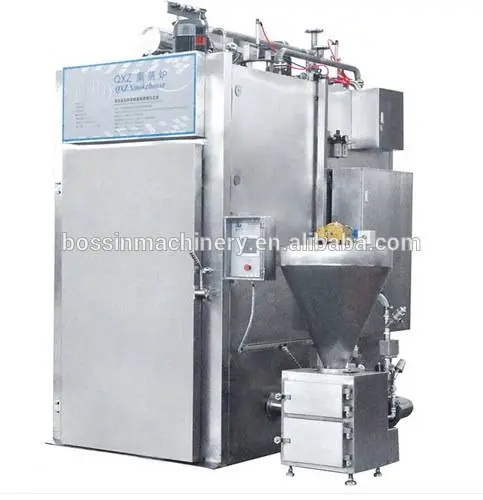
Jul . 27, 2024 19:49 Back to list
Top Manufacturers of Vacuum Stuffing Machines for Efficient Food Processing Solutions
The Importance of Vacuum Stuffing Machines in Modern Food Processing
In the ever-evolving landscape of food processing, vacuum stuffing machines have emerged as a cornerstone of efficiency, hygiene, and product quality. As manufacturers strive to meet the growing demand for processed food products, the significance of these machines cannot be overstated. This article delves into the features, benefits, and the critical role vacuum stuffing machine manufacturers play in revolutionizing the food industry.
What is a Vacuum Stuffing Machine?
A vacuum stuffing machine is specialized equipment used primarily in the meat and food processing industry. It is designed to fill casings—either artificial or natural—with various kinds of meat mixtures, such as sausages, salamis, and other prepared foods while removing air from the mixture. The reduction of oxygen levels is crucial as it helps in prolonging the shelf life of the products by preventing the growth of aerobic bacteria and spoilage microorganisms.
Key Features of Vacuum Stuffing Machines
Vacuum stuffing machines come with a variety of advanced features that cater to the specific needs of food manufacturers
1. Vacuum Technology The hallmark of these machines is their ability to create a vacuum environment, which significantly enhances the quality of the stuffing process while preventing air pockets that can lead to spoilage.
2. Precision and Control Modern vacuum stuffing machines are equipped with sophisticated control systems that allow for precise adjustments regarding stuffing speed, pressure, and volume. This ensures that the end products are consistent in size and quality.
3. Hygienic Design Adopting a hygienic design is essential in food manufacturing. Many vacuum stuffing machines are constructed using stainless steel and incorporate easy-to-clean components, thereby minimizing the risk of contamination.
vacuum stuffing machine manufacturer

Benefits of Using Vacuum Stuffing Machines
The advantages of incorporating vacuum stuffing machines in food processing are manifold
1. Extended Shelf Life By removing air, these machines significantly lower the possibility of oxidation and spoilage, ultimately enhancing the shelf life of products.
2. Improved Product Quality The vacuum stuffing process ensures a uniform filling, which enhances the appearance and texture of the final products, leading to better customer satisfaction.
3. Increased Efficiency With automated features, manufacturers can achieve higher production rates, reducing the labor costs and time associated with manual stuffing processes.
4. Reduced Waste The precise nature of vacuum stuffing machines minimizes excess materials and allows for better yield from the raw ingredients used.
The Role of Vacuum Stuffing Machine Manufacturers
The demand for high-quality vacuum stuffing machines has surged, prompting manufacturers to innovate continuously. Their role extends beyond simply producing machines; they are tasked with understanding the diverse needs of various food processors and integrating feedback into the design and functionality of their offerings. Many manufacturers also provide maintenance services and training to ensure that food processors can operate their equipment safely and effectively.
In conclusion, vacuum stuffing machine manufacturers are pivotal in modern food processing, providing machines that enhance efficiency, product quality, and food safety. As the food industry continues to grow and change, these manufacturers will remain crucial partners, helping food businesses meet consumer needs while adhering to strict health standards. The future of food processing, therefore, looks promising with the continued advancement and adoption of vacuum stuffing technology.